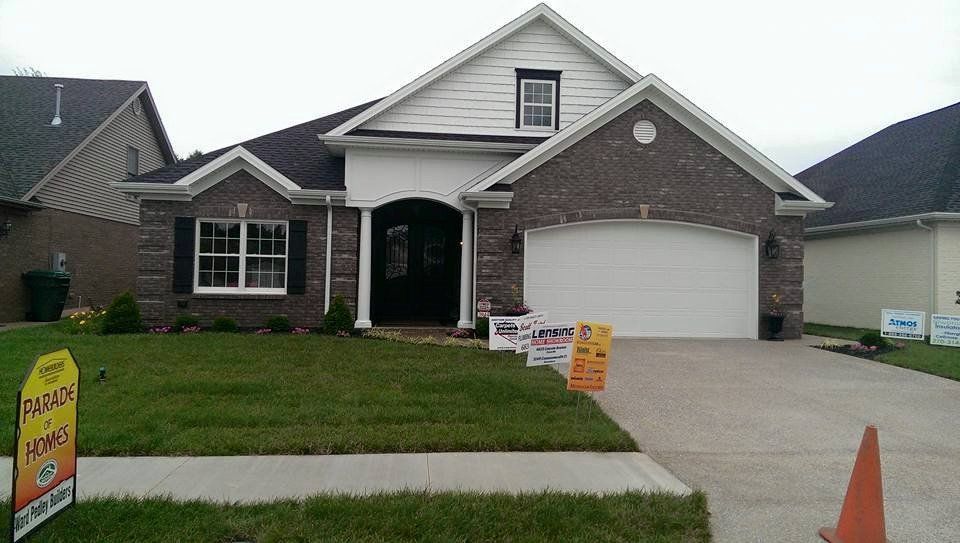Home Buyer Information
So you’re thinking about buying a new home? Good decision. But, doing your homework is the first step to choosing the right home. Through the Home Builders Association of Owensboro home buyer information, you’ll get tips on learning the home buying lingo, shopping around, choosing a builder, communicating with your builder, taking charge, wrapping up the sale, and caring for your home after purchase.
Home Buyers Should Start by Selecting a Reputable Builder

How to Choose a Home Builder
- The first step homebuyers should take in their search for a new home that provides lasting satisfaction is to select a professional builder who is known for quality construction and strong customer service.
- Most home builders construct fewer than 10 homes per year and as small local business persons, rely heavily on referrals from previous customers to generate new business. As such, a home building company is only as good as its reputation.
- Most home building companies are in business to stay and they can only do so to the extent that they have satisfied customers. In fact, many builders live in the communities they build.
Steps in Selecting a Reputable Builder
Homebuyers should begin their search by discovering who is building in the area where they want to live.
Below are several sources homeowners might find helpful:
Some of the best builders rely on referrals and do not advertise. Talk to friends, relatives, and colleagues at work who have recently purchased a new home or had one built.
Local chapters of the National Association of Home Builders can provide names of companies that are members. In the Dallas area, click on Search for Builders on this website.
Area real estate agents, familiar with new home construction, can offer builders’ names and insights into quality and customer satisfaction.
To narrow their prospective list of builders, buyers should look closely at each builder’s finished work and work in progress, including models, occupied homes (if interested in a custom-built home), and homes under construction.
Meet with the builder or the person who would be in charge of building your home to learn more about the company and the homes they build. Are your questions answered clearly and completely? Remember that your relationship with the builder will continue through the warranty period, so choose someone with whom you will be comfortable for the long term.
As part of the interview process, review the contract, warranty, and warranty standards that the builder provides. Note the amount of detail provided. The same attention to detail usually flows through the construction of the home. Don’t hesitate to ask questions about any items that you don’t understand.
Many builders today provide a homeowner manual that guides buyers through the homebuilding and purchase process. This type of manual can familiarize you with the procedures the builder follows in working with his/her clients and is often an indication of the builder’s commitment to customer satisfaction.
To determine how a company treats its customers, it is important for prospective homebuyers to talk to previous buyers of the builders’ homes. Visit communities on weekends when people are more likely to be outside and ask several different people how the company was to work with and how satisfied they are with their home.
A Well-Written Contract
Disputes between parties often involve good faith issues that their contracts do not adequately address, either because the parties did not consider these issues or because they failed to write them in the contract.
A well-written contract is a critical tool for reducing liability. It should:
- be a product of the parties’ negotiations
- describe in detail the rights and obligations of the parties
- fairly allocate the risks inherent in the project
Such a contract provides the parties with a mutual understanding of contract terms and conditions, thereby improving the chances that each party’s expectations will be met.
A well-written contract helps prevent disputes from arising during construction because the parties have settled potentially troublesome matters such as the scope of work, the materials to be used, and the time and method of payment before the project begins.
Although a well-written contract requires communication between the parties, it is no substitute for ongoing communication between the buyer and builder during the project. This is another reason to select a builder from the start with whom you can communicate effectively and who you are comfortable with.
Express Warranty
Many builders also include a limited warranty in their contracts. Such a warranty can also help prevent disputes after construction is completed.
The warranty, like the contract, should clearly express the intent of the parties. The limited warranty describes the problems and remedies for which the builder will be responsible after completion of the project and the duration of the warranty. It also defines the mechanism for addressing disputes.
If a builder warrants workmanship and materials in a warranty, the warranty should also provide some guidelines or standards against which to judge the builder’s compliance. One of the best sources of such guidelines is “Residential Construction Performance Guidelines for Professional Builders and Remodelers.” (Available from
www.BuilderBooks.com).
Home Builder's Association of Owensboro | Website Donated & Developed By Oddball Creative
